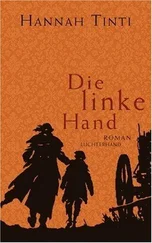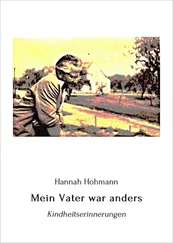“Come,” Ayya says, and leads me to his neighbor’s house, where it seems the whole village is gathered in the front yard, laughing and talking and squatting over plates of food. Children chase each other, running figure eights around the grown-ups’ legs and shrieking when they get caught. I find myself smiling as I enter the yard. But then I see Suriya’s face, an island in the chaos of limbs and voices and consumption. Making eye contact with her is like staring at a blinding light. “El,” she says, and takes my hands in hers. “This is my auntie’s house. We must come here for meals. During funeral days, we cannot eat in our home. Or we will become sick. One time there was a woman in our village who fed her child during a funeral. All the people told her no, but she said, I don’t believe old stories, baby is hungry, and she gave some rice milk. And then that baby becomes so sick. He must live in the hospital. So we cannot take meals at our home until the funeral is finish, okay, El? Very important.” She speaks quickly, tonelessly. Her English seems better than ever. “Okay, El?”
“Yes, okay. I’m happy to see you. I’m so sorry.” Pause. Silence. Try again. “There are so many people here.”
“Yes, there are many. Because my mother is kind.”
I look away from the wounded gape of Suriya’s eyes. “Where is your father?”
“He is in the bed. Like baby. In these days, I must do everything for him. I give him to eat and wash his face. He is not moving. When we learned she has died — the sound that came from his mouth, El. It eats my heart.”
A short woman with wide, flat nostrils gives Suriya a plate of oil cookies. Suriya stares down at the cookies as the woman speaks to her in Sinhala, gently at first, then more emphatically. At last the woman takes the plate from Suriya’s hands and walks toward the kitchen. “I don’t know what that woman is saying to me. I am to do something with those cookies. I think.” Suriya’s mouth barely moves as she speaks. I want to pull her toward me, but my body offers no assistance. I stare at the dirt clinging to my swollen toes.
“What happened, Nangi?” I ask. “How did she die?”
“She had a tomb in her womb. And she had blood coming from her breast. Like milk. Except blood instead.”
“Did she have cancer?”
Suriya closes her eyes, her thumbs pressed against her temples. “My head is a ghost’s garage.”
—
We dress in white on the day of the funeral. Suriya irons the family’s clothes on the upstairs patio, holding each item of pristine cloth to the light and turning it about in search of creases. As I start to tie my hair back in my usual haphazard bun, she looks at me in alarm. “Akki? Shall I fix your hair?” Her mundane concern makes me giddy with relief.
Three monks from the village temple come for the service. They stand in front of the casket in worn robes, eyes softly unfocused, hands clasped before them, a little too poised. The oldest one speaks for a short, dreary while. When he stops, Suriya’s father raises a golden pitcher into the air. Suriya and Ayya place their hands atop his, and together they tip the pitcher downward, letting the water it contains fall into the dry earth below Amma’s coffin. A willingness to give up the most precious thing, maybe. Allow the heart to break because that’s how the heart survives.
Suriya’s spine curls toward the ground, an unseen weight pulling her down. Her wail reminds me of the time my auto-rickshaw driver ran over a puppy in Colombo and then laughed at my anguish over such trivial suffering. Ayya takes Suriya by the armpits and pulls her upright. His chest absorbs her howl. I don’t realize the service has ended until people begin to crowd around us, patting Suriya and murmuring words that are probably trite but necessary before heading into the cloudy day. Suriya’s father and brother stand on either side of her and pull her up the stairs to her room.
Hashini and her husband walk over to me. I put my hands in front of my chest and bow. Hashini smooths down my hair. Rajesh grins and nods vigorously. Suriya’s wails continue from her bedroom. Ayya comes down the stairs and hurries to me, pointing down the road to the eating house. “Take a meal,” he says. “Please.”
“I go to Suriya,” I say, accidentally mimicking her English.
I find her lying on her side, clutching at the sheet, her mouth opened wide, shrieking soundlessly. How much of my adult life I have passed in this position, for reasons that seem so wasteful now. I lie beside her, my butt falling off the small bed. I take her hand in mine and press our clasped hands against her chest. Her heart pounds through her back. I can admit to myself now — in feeling, if not in words — why I was irritated when Suriya spoke of her mother’s illness. It seemed almost sweet to die, compared to choosing to leave. I had no idea; I still don’t. I breathe loudly and slowly. I can’t think of anything else to do. Only after it grows too dark to watch the large, slow bounce of palm leaves through the window does Suriya quiet. I loosen my grip on her hand as her cry loosens into a thin, slow wheeze.
When my eyes open many hours later, Suriya’s back is still pressed against my chest. The white pit of the sun fills the window. Suriya yawns and fidgets her way to wakefulness.
“I want tea,” she says. “Okay, Akki?”
After she leaves, I cross my legs under me and sit still for a while, waiting for the ache to become nothing more than an ache.
The front yard is empty, the tent and casket gone. Suriya is in the kitchen, ladling thin, beige batter into a small pan on the electric burner. The batter hardens into a bowl-shaped crepe. “Do you like hoppers, El?” she asks, handing me a full plate.
I love. I bite into the thick, spongy center, soaked with spicy coconut sauce. I ask Suriya to tell me how to make these, for when I’m back in the States.
“So easy,” she says, swirling the pan to even out another spoonful of batter. “Rice flour, coconut milk, one egg. Or two eggs. Or no egg, if you don’t have. Salt. Little oil. Hopper dust.”
“Hopper dust?”
“Yes,” she says evenly. I miss her usual exclamatory inflection. “Mix in a bowl and cook in a hopper pan.”
Suriya’s father walks in, wearing the same clothes he wore at the funeral. She straightens her spine. Her voice is too cheery as she tries to hand him a plate of hoppers. He scrunches his small nose as if smelling something rotten, turns his back to us, addresses the doorway. The words march in a slow, loose line, following orders out of habit.
“My father is angry with me,” Suriya says when his hunched shoulders disappear through the door.
“Why is he angry this time?”
“Because my mother loved to make hopper meals. He says to me, ‘Everywhere I see her remembers and her moments.’ This is my father’s sad. But I need her remembers and her moments.” She stirs up the batter, which I will clearly not be able to reconstruct at home. “You know the parable about the woman with a baby that died, El? And she ask Lord Buddha to make that baby live again?” The Buddha told her he could make a special medicine if she brought him mustard seeds from a house in which no one had ever died. The mother went from house to house, clutching her dead baby, begging for the seeds, receiving instead story after story of loss. Finally she buried her son in the woods, sad and okay. A miracle of acceptance. “I need to think of my mother’s small things, to remember them all,” Suriya says. “But I must balance small things with big ones. Do you understand?”
Yes. No. I look at her closely.
“What are you thinking, Akki?” She slides a hopper onto my plate.
That your goodness is not make-believe, not part of any machine.
Читать дальше












